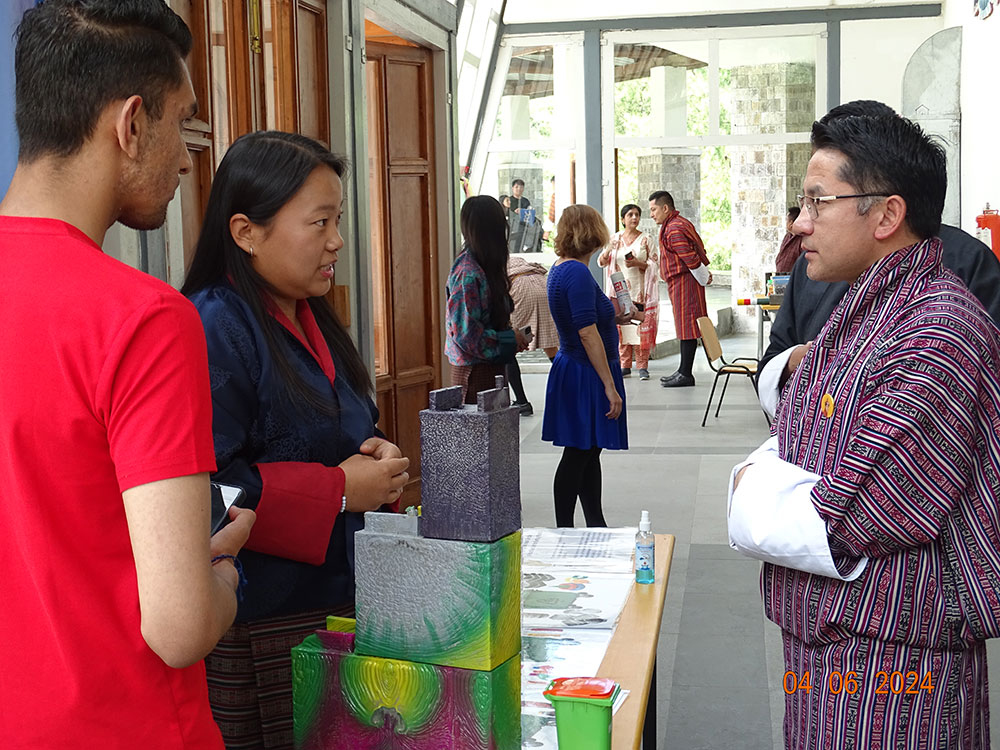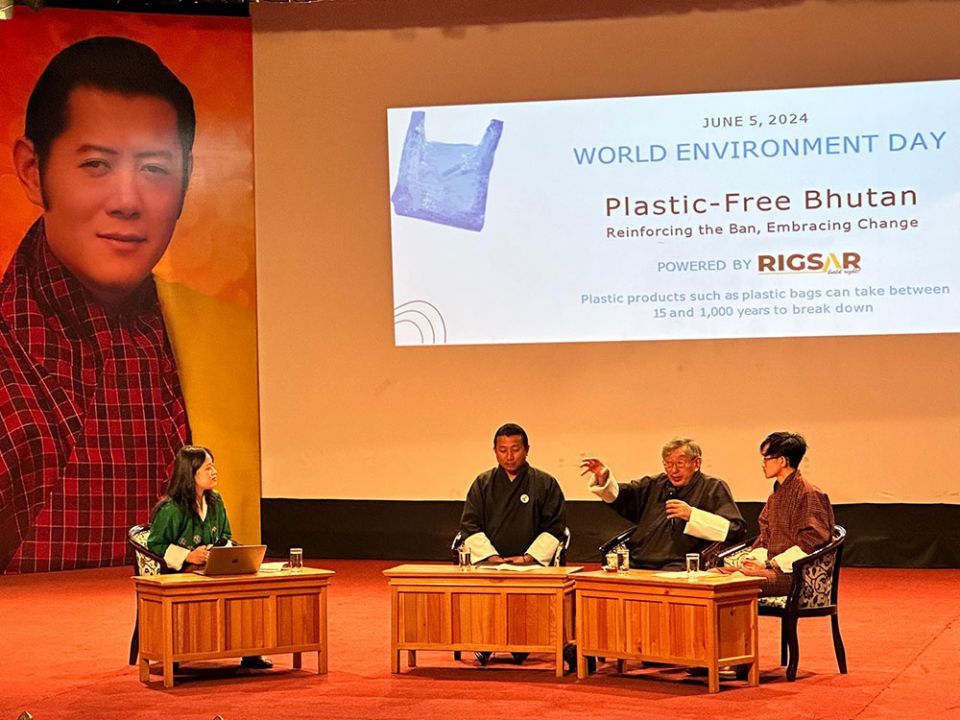
“Reduce reliance on PET bottles and single-use plastics, implement green and alternative solutions to reduce plastic use, and establish a task force to monitor and enforce the policy.”
With these words, about 23 student advocates from Royal Thimphu College (RTC) submitted a petition to the prime minister and the government calling for stricter enforcement of the existing plastic ban.
As part of “Plastic Free Bhutan: Reinforce the Ban, Embracing Change”, advocacy initiative marking World Environment Day yesterday, the petition was handed over to the Minister of Agriculture and Livestock.
The growing environmental challenges of plastic pollution demand urgent action.

In Thimphu Thromde, waste collection vehicles separate waste into wet, dry, hazardous, and other categories. The waste strategy aims to decrease the amount of waste sent to landfill to less than 20 percent by 2030.
According to the National Waste Inventory Survey (NWIS) of 2019, Bhutan produces 172.16 metric tonnes (MT) of solid waste every day.
As per a 2021 record, the daily average of the waste disposed at the landfill was 54 MT. There is no weighbridge for measuring waste generation or dumping at the landfill.
Thimphu and Phuentsholing have the highest density of plastic waste production, with 18,000 tonnes of plastic consumption per year and waste generation of 14,000 tonnes annually.
The government’s Zero Waste Bhutan App functions as a tracker for waste-related offences. So far, it has recorded 436 offences and 369 incidents of waste-related issues.
A student advocate, Priya Rai of RTC, said that the initiative aimed at raising awareness and encouraging proactive steps towards a sustainable future.
“While policies to ban the use of plastic exists on paper, the implementation requires a joint effort from everyone,” she said. “We cannot rely entirely on the government to make it happen.”
rcement of the ban, she said, would mitigate plastic pollution and inspire neighbouring countries and the world at large to adopt similar measures.
Another student advocate, Karma Tshering, said that despite numerous efforts and policies to combat this issue, the adverse impacts of plastic waste continued to escalate.
“Single use plastics; including plastic bags, straws, and bottles among others contribute significantly to the environmental degradation, threatening the natural landscapes, wildlife, and human health,” he said.
The students expect to hear from the prime minister soon, “It has started well with the college supporting the initiative and agreeing to manage waste at the college,” a student said.
As a part of the event, the students also signed an agreement with the college management, demanding the college to reduce PET bottles and single-use plastics at all college events.
The college committed to promoting alternatives by encouraging the use of reusable water bottles and installing hydration stations.
College president, Tshewang Tandin, said that the college committed to adopting green procurement policies and prioritise the purchase of sustainable and plastic-free products and developing guidelines for organising plastic free events at the college.
“This pledge demonstrates our commitment to promoting sustainable practices and reducing plastic waste within our community,” Tshewang Tandin said.
The event also featured a panel discussion to explore the challenges and opportunities in enforcing the plastic bag ban with key stakeholders.
Dasho Paljor J Dorji, an environmentalist, said that the initiation of the ‘plastic ban’ concept was not timely. “Do not ban it if we cannot really do it,” he said. “Instead, work on sustainable use and management of plastics.”
The concept, he said, would not work unless people cared about personal consumption, management and impact on the environment.
“A well-practiced legislative policy towards waste management, through provision of attractive subsidies to the agencies working towards it, may bring changes,” he said.
Chairperson of NA’s environment and climate change committee, Pema Drukpa said that the committee discussed and planned to work on policies and regulations concerning the environment and climate change, including the issues of plastic waste in the country.
“Although the ban was initiated in 1999 and later reinforced in 2019; factors such as high-cost of eco-alternatives, accessible waste disposal points and lack of proper sanitary landfill infrastructure or facilities to convert waste into energy are major concerns towards waste management in the country,” he said. “Such advocacy programmes are crucial in raising the issue at a policy level.”
The students also showcased short-films on waste management issues and way ahead, followed by an eco-waste fashion show.
Prior to the advocacy programme, the college conducted a marathon to advocate on waste reduction and its management. Social media campaigns to encourage people to switch to greener and sustainable alternatives were also held.
The student-led advocacy at the college was held with funding support from the Rigsar Construction Private Limited.












